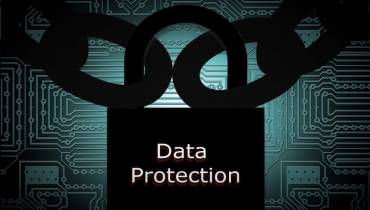Business Debts Are Soaring: Should You Be Concerned of a Recession?

If you are a startup, entrepreneur, small business or self-employed, any money your business owes is known as a business debt, and it can have an outsize impact on your business success.
Many businesses have closed shop due to runaway debt and credit burdens, which is why it’s important to manage your debts properly and promptly recover any outstanding debts owed.
Runaway debt? What does it look like in a small business or startup, and how is it emerging as a major issue of concern for businesses today?
Debt is basically an amount of money that is borrowed by a person/organization from another. In simple terms, this is not your own money but borrowed money which you either use to purchase something really expensive or during emergency needs.
The entire debt arrangement is tied up with terms and conditions that are mutually agreed upon. The primary condition and arrangement in a debt is related to repayment.
Generally, debts are supposed to be repaid at a later date. To compensate for the time factor of money, an interest amount is charged. This constitutes the basic cost of owing a debt.
The repayment schedule is usually fixed at the time of financing debt. This payment schedule is to be maintained regardless of what your condition is.
These days, however, corporate debts have increased manifold thanks to easy borrowing terms and a seemingly endless thirst from investors. Investors themselves are racking up on corporate debt, raising concerns in the financial market.
Business Debt Upsurges Raising Concerns
As of the first quarter of 2019, non-financial corporate businesses were carrying a $9 trillion debt load—a record in dollar terms, per flow of funds data from the St. Louis Federal Reserve. This upsurge poses a potential threat should rates continue rising and the economy weaken.
“Debts are occupying a major percentage in the finance markets, observes Jeff Cox, finance editor for CNBC.com, “and concern is building that a combination of higher interest rates on all that debt will begin to weigh meaningfully on corporate profit margins.”
A company’s operating cycle is regarded as efficient if the debt turnover period is sufficient enough to not give rise to new working capital requirements.
However, when you spend more than you bring in, you go into debt. The interest costs from your debt can then accumulate into a significant monthly expense, causing your debt to increase even faster. This in turn can result in a vicious debt cycle or continual borrowing that leads to increased debt, increasing costs, and eventual default.
Many startups today find they cannot operate without entering this debt cycle. So, you can understand how important debt and debt-related concerns are for businesses.

What Brings Debt Issues and Heightened Concerns?
Having seen how important debts are and the heightened debt concerns in the market right now, the question is how do these debt issues arise? What leads to debt problems?
The answer to these questions might not be straightforward. The debt agreement exists; parties to the agreement exists, but there also exists an uncertainty with respect to conditions.
Entering a debt cycle is relatively easy, but leaving it can be difficult. The reason is that the conditions of the borrowing party can change at the time of repayment and complicate things.
There can be several reasons as to why the borrowing party fails to keep up with the debt terms agreed upon at the time of the agreement. To list a few, they can include:
1. Dishonoring of contract
This is one of the major reasons as to why so many contracts fail in this regard. There can be a case where one party has included such clauses that could harm the other party or the agreement contains factual flaws as regards to debt arrangements. In either case, the contract becomes subjective and can be dishonored causing a delay in repayment of debt.
2. Insufficient Accounting
This happens usually with corporates who streamline their capital using debts and debt instruments. Some of these corporates fail to keep adequate records for the debt that is owed to the company. This gives rise to situations such as missing the deadline, incongruency of terms with the lending party, financial distress, etc.
3. Inefficient payment channels
It can so happen that the payment channel which has been chosen for repayment has a big-time delay inherent in it. This can cause unnecessary delay in repayment which can be a major drawback for the debt providers.
4. Low debt turnover ratio
If a company that operates on debt cycles fails to convert debts to cash, this can cause insufficient credit balance with the company to pay off its debts. A company should, therefore, maintain a healthy debt turnover ratio.
As you can deduce from these reasons for debt problems, many things can heighten business debt issues and concerns. However, complex problems also often have really easy solutions.
What’s the Solution?
The solution, in this case, is as simple as managing your money better and taking out loans and debts more shrewdly to avoid going into unmanageable debt or a deadly debt cycle trap.
You should also be warry of debt consolidation scams to avoid further financial woes Ultimately, though, proper money and financial management is essential for business success.
On the other hand, if your business is owed debts by other businesses, individuals or associates, then enlisting the services of a debt collection agency can be a huge help. These agencies are specialists in the collection of debts from debtors on behalf of their clients.
The concept of debt collectors is as old as debt itself.
In earlier times, debt existed in raw forms without (or with very minimal) documentary evidence. The laws relating to debt were also not imposing enough to regulate debt circulation. Because of these drawbacks, debtors had a fear of debt collectors.
Debt collectors back then used coarse techniques to achieve their outcomes. They did not fear to use aggressive methods, such as physical assault, harassment, and injustice.
Things have since changed and debt-collecting agencies can be the ultimate savior for business to manage debt professionally.
Over the years, growth of debtors and debt financing has been tremendous. Now, debtors hold the same position as that held by a consumer. They have their assigned rights which if violated can be legally questioned. This has given rise to the need for synchronizing strict rules with a customer-centric approach, leading to the emergence of dedicated debt collection agencies.

Rise of Business Debt Collection Services
Consider a debt collection company like Cedars Business Services, also known as Cedars International. This firm, headquartered in Southern California, specializes in providing corporate solutions to companies in matters pertaining to debt collection. So far, they serve at both domestic and international level and have stood at par with their commitments.
The debt collecting company provides corporate services for collecting a local debt, as well as international debt. And like other debt collection agencies, it also serves diverse industries including education, healthcare, government, retail and commercial sector.
When you enlist the services of such a debt collection agency, it can provide you with specialized debt collection solutions for collecting local debts, as well as international debt.
Debt collection agencies usually employ professionals from diverse backgrounds who are proficient in negotiation and customer satisfaction. These professionals take up the onus to collect the existing debts from the debtors in a subtle, polite, and firm way.
If your business is owed significant debts and you don’t want to waste a lot of your precious time and resources chasing your debtors to pay up, you can streamline your debt collection strategy using a debt collection agency. The agency will take necessary debt collection measures that would suit both you and your customers or debtors, while the debts are also realized.
What Is the Process?
Debt collectors have come a long way since inception. The coarse techniques of debt collection are replaced with efficient corporate solutions and now they focus more on persuasion and negotiation with customer satisfaction.
There is a very simple process that these debt collectors follow to realize debts. First of all, they are either assigned with the task of collection and remittance of debt to the original creditor or these debts are sold to debt collection agencies.
While this happens, the debt collection agency acquires all the relevant information about the debtor from the creditor. The information includes contact details, postal addresses, account balances, and statements of payments.
Next, these global debt collection agencies contact you either through a phone call or a letter. Their executives can even show up at your address to collect unpaid debts. They will help you validate the claim as well, so that you can be sure that the claim is genuine.
Debt collectors may make repeated attempts to influence you to clear your dues but in case you don’t, they have the right to take legal actions upon you.

Right Mix of Professionalism and Customization
If the party owing a debt can’t afford to repay when contacted by a debt collector, what happens then?
When a debtor is contacted, oftentimes they may not be in a position to repay the debt at once. In that case, they provide solutions which may include payment of debts in instalments.
For the sake of transparency, the entire process is done either through phone or web, with the freedom of debtors kept at the helm as they are usually not contact before 8 A.M. and after 9 P.M. local time. This presents a nice mix of professionalism and customization in debt collection.
Debt collection services are commonly used by educational institutions to collect fee debts from international students, healthcare sectors in the collection of due debts from foreign patients, the government in the collection of fines and penalty dues, corporates by curating corporate solutions for the collection of due debts, and also the retail sector by collecting customer dues.
The right debt collection agency can provide tailormade solutions designed for any industry.
So, Should You Be Concerned by Rising Debt Levels?
Well, in today’s fast-paced economy and highly competitive business environment, it’s not surprising that businesses and startups are increasingly taking on more debt to expand operations, resulting in businesses sitting on record levels of global corporate debt.
This high level of debt – higher in fact than it was before the Great Recession of December 2007 to June 2009, according to an analysis by Deloitte – does pose some risks in the financial market. There is some fear that it could lead to another full-blown recession, but perhaps you should not overly worry about that or about contributing to a global financial crisis at this time.
From a macro perspective, the large number of businesses and investors currently accessing loans is not any different from what has happened in previous economic recoveries, per Deloitte.
If you have the ability to repay what you borrow, there should be no reason for concern at present—after all, borrowing and investments are part of a healthy market economy—what matters more is the borrowers’ ability to repay the debt, says Deloitte.
And if you are a creditor or are a business owed money by someone, the existence of reliable debt collection agencies like Cedars Business Services can help you overcome the dilemma of how to efficiently get back your hard-earned money in a much less treacherous manner.

![9 Tips for Managing Your Online Writing Projects Efficiently [node:titile]](/sites/default/files/styles/thumbnail_rectangle/public/open-book-laptop-online-writing-tips.jpeg?itok=iq4PIT7b)


















